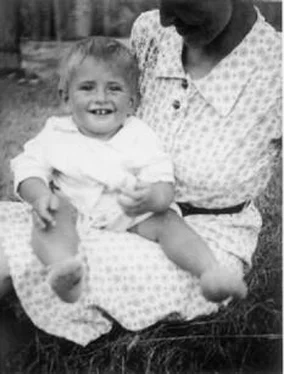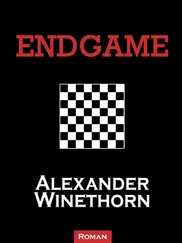Not knowing that his arrest was imminent, and believing that his passport was legal, on July 13, 2004, he went to Narita Airport in Tokyo to board a plane bound for Manila. He was arrested and shackled in chains.

One of the first things Fischer tried to do while he was behind bars was to ask permission to call someone—perhaps an attorney who could assist with setting bail. The authorities wouldn’t permit him access to a telephone, however. People who violate Japanese law, even unknowingly, may be arrested, imprisoned, and deported. They may also be held in detention for a minor offense, without bail, for months or more during investigation and legal proceedings. Bobby’s claim that he was an American citizen and had a right to make a phone call was ignored.
Twenty-four hours later, an immigration official at the airport called Miyoko to tell her what had happened, and she immediately contacted an attorney and headed for the airport detention facility to see Bobby—but when she arrived there, visiting hours were over. She did see him the next day, for thirty minutes. “He was so upset, and I didn’t know what to say to console him,” she told a journalist.
Fischer was kept in the Narita Airport Detention Center for illegal immigrants for almost a month on the initial charge that he was attempting to travel on an invalid passport, but the more serious charge echoed back to 1992, for defying the American trade embargo and participating in the match with Spassky in the former Yugoslavia. It’s possible that Fischer’s broadcasts were the fuel that sparked the U.S. government to activate the decade-old charge against him. Certainly, the Department of Justice wanted him deported back to the United States to stand trial for his violations, possibly in concert with the Department of the Treasury, for income tax evasion. Miyoko, for her part, thought that U.S. authorities could have arrested Bobby anytime post-1992, but they didn’t and only went after him when “suddenly he started to attack America and it made the government very angry.”
Bobby was like a caged panther, pacing up and down, continually complaining about everything, from the food, to the temperature, to the disrespect his captors showed him, and screaming at the guards. He wasn’t the ideal prisoner; he was the type of person who couldn’t be incarcerated indefinitely without doing harm to himself or others. As it was, he sparked fights with the jailers and eventually was transferred to the East Japan Immigration Detention Center in Ushiku, forty miles northeast of Tokyo. The center had all of the trappings of a high-security prison, and its inmates were incarcerated there for relatively long periods. Fischer claimed that at sixty-one he was the oldest prisoner in the center and therefore deserved more deference. But his seniority and chess credentials counted little with the guards. Once, when he told the guard who brought him his breakfast that his soft-boiled eggs were really hard-boiled and that he wanted an additional egg, they got into a scuffle. He ended up in solitary confinement for several days and wasn’t permitted visits or even allowed to leave his cell. Another time, he purposely stepped on the glasses of a guard he didn’t like and was given solitary again.
Miyoko visited him a few times each week—a two-hour trip each way from Tokyo—and she brought him newspapers and some money so he could buy extra food (usually natto , which was fermented soybeans) from the jailers. Several people immediately tried to assist Bobby in securing his release, most prominently Masako Suzuki, a brilliant young lawyer who became his chief counsel and most determined advocate, and John Bosnitch, a forty-three-year-old Canadian journalist of Bosnian origin who was stationed in Tokyo. They formed a committee called “Free Bobby Fischer” and worked with others trying to extricate Fischer from his cell. Suzuki filed proceedings to address what she claimed was an illegal arrest. Fischer called it a “kidnapping.”
It isn’t known how much Fischer paid for his legal defense, but it probably wasn’t all that much since Suzuki was receiving pro bono advice and assistance from those who felt Bobby was being persecuted. His plight had become a cause. And although Bosnitch was not a lawyer, he seemed to know the intricacies of the Japanese legal system and was both pleasantly aggressive and courteous, which impressed the lawmakers and officials he had to deal with. He was subsequently named an amicus curiae in Fischer’s case and sat in on and participated in all of the legal proceedings. One of the first orders of business was to prevent Fischer’s deportation to the United States. Bobby believed that if he were brought back and forced to stand trial, he’d be convicted. But that was the least of it. He was convinced that he was so hated by the government that he’d be murdered while serving time. One of the ways he thought the deportation might be prevented, or at least delayed, was for him to become stateless by legally renouncing his citizenship. Then the United States would have less jurisdiction over him. He wanted to stay in Japan.
Renunciation of United States citizenship requires three things: (1) an appearance before a U.S. consular or diplomatic officer, (2) the renunciation must be done in a foreign country (normally at a U.S. embassy or consulate), and (3) an oath of renunciation must be signed in person before a U.S. official.
Bobby wrote to the U.S. embassy in Tokyo asking them to send a member of the diplomatic staff to the detention center so that an official could accept his citizenship renunciation. No one came. He also wrote to Secretary of State Colin Powell to enlist his help in allowing him to renounce his citizenship. No answer. Finally, Bobby wrote another letter to the U.S. embassy in Tokyo insisting that they send someone, and in case they didn’t comply, he appended his renunciation. If Bobby had any trepidation about permanently severing his relationship with the United States, there was no evidence of it in the renunciation he wrote. He had to get out of his imprisonment, and so he attempted to surgically remove himself—quickly and precisely, slicing away at his homeland, aware that it would be a permanent farewell, never to be undone. The text:
I am Robert James Fischer. I am a U.S. citizen. I was born on March 9, 1943 in Chicago, Ill. U.S.A. My U.S. passport no. is or was Z7792702. It was issued at the U.S. Embassy in Bern, Switzerland. The issue date is January 24, 1997 and the expiry date is January 23, 2007. I Robert James Fischer do hereby irrevocably and permanently renounce my U.S. citizenship and all the supposed rights and privileges of United States citizenship.
Bobby Fischer’s renunciation of his citizenship was never accepted by the United States. He remained a citizen. Meanwhile, Suzuki and Bosnitch appealed to the courts on Bobby’s behalf for him to become a political refugee from the United States and be allowed to live in Japan. Their argument was that when he competed in Yugoslavia, he violated the trade sanctions purely as a political act against the United States, and he was now being punished for it. This request was denied. Bobby’s team also pleaded to the court that it strike down the deportation order requested by the United States and brought by the Japanese Immigration Bureau. That request was denied too. Bobby had been locked up for over a month at this point and was becoming desperate. Finally able to make outgoing calls, he, along with his team, started contacting a number of countries to determine if they would offer him asylum:
Germany—Bobby’s plea was based on his paternity, in that his father, Gerhardt Fischer, was German, and under the blood citizenship law of the country, Bobby claimed to be a German citizen. The problem was that Bobby was a Holocaust denier, which is a crime in Germany. If the country offered him asylum, his past remarks would get him arrested as soon as he entered.
Читать дальше



![Антон Текшин - EndGame [СИ]](/books/394477/anton-tekshin-endgame-si-thumb.webp)









